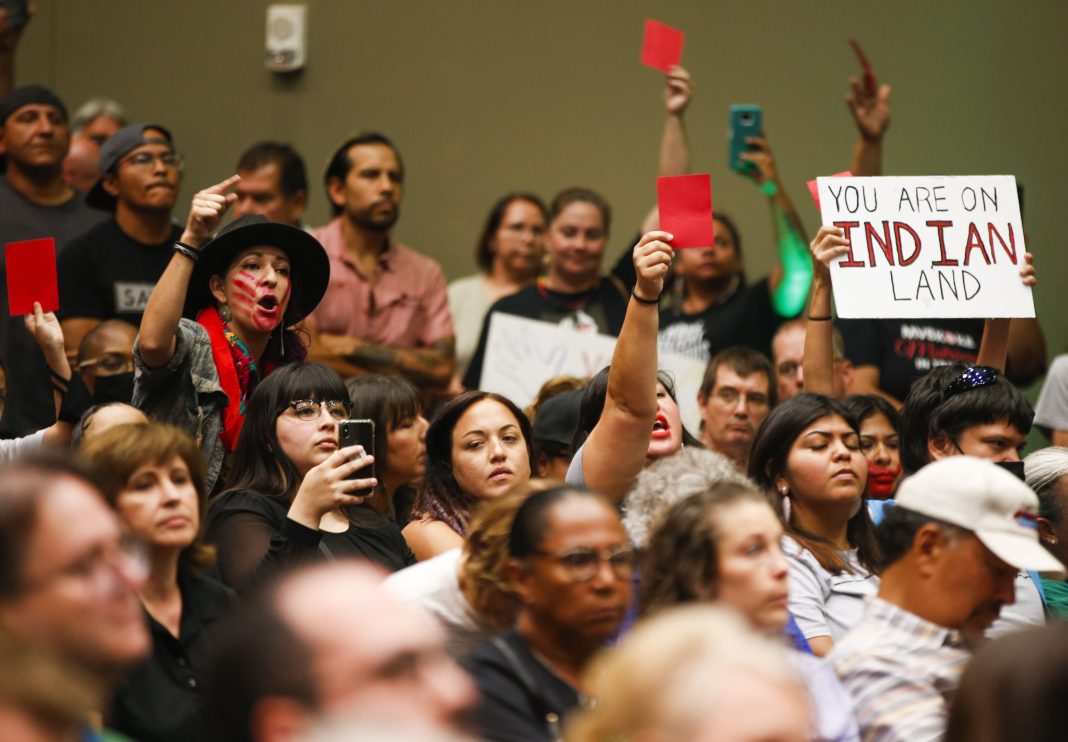Title: Justice for Indigenous Nations Is Rare. But This Supreme Court Decision Proves It Is Possible.
Introduction:
Rebecca Nagle’s book, “By the Fire We Carry,” delves into the history of the U.S. government’s forced removal of Indigenous peoples and a landmark Supreme Court case that upheld tribal sovereignty. This narrative explores the tragic events of the forced removals, the legal battles faced by Indigenous nations, and the significance of the McGirt v Oklahoma decision.
The Trail of Tears: A Dark Chapter in American History
– The U.S. government forcibly removed 80,000 Indigenous peoples from their ancestral lands east of the Mississippi.
– The Cherokees, in particular, were rounded up and forced into concentration camps, where thousands died due to squalor and violent conditions.
– The forced march westward, known as the Trail of Tears, claimed the lives of thousands more.
– The scale of loss of life and the subsequent decline in population for Indigenous nations is a tragic legacy.
Debating Genocide and the Meaning of Removal
– Historians still debate whether the United States committed genocide against Indigenous peoples.
– The Cherokee word for their removal, “ᏗᎨᏥᎢᎢᎸᏍᏔᏅᎢ,” translates to “when they drove us,” highlighting the similarity to herding animals.
– The United Nations defines genocide as the intent to destroy a national, ethnical, racial, or religious group through physical violence.
The Broken Promises and Unfulfilled Obligations
– The U.S. government promised Indigenous nations that their new lands in the West would be secure forever.
– However, Oklahoma was created on top of Muscogee land, and the reservation was denied for over a century.
– The McGirt v Oklahoma Supreme Court case would determine the reservation status of Muscogee and other tribes.
The McGirt v Oklahoma Decision: A Landmark Ruling
– In July 2020, the Supreme Court ruled that the Muscogee Nation still had a reservation, along with eight other reservations in Oklahoma.
– This decision resulted in the largest restoration of Indigenous land in U.S. history, covering 19 million acres.
– The court’s ruling was based on the government’s promise to the Creek Nation and the absence of any congressional action to dissolve the reservation.
The Significance of the McGirt Decision
– The court’s decision did not overturn anything but rather followed the law, making it a radical move in upholding tribal sovereignty.
– It highlights the ongoing struggle for Indigenous nations to protect their rights and the need for the U.S. government to fulfill its legal obligations.
– Federal Indian law reflects the victories, defeats, and compromises of Indigenous nations throughout history.
The Lesson of McGirt: Justice Is Possible
– The rarity of justice for Indigenous nations underscores the significance of the McGirt decision.
– While the U.S. government often prioritizes greed over justice, the decision demonstrates that justice is possible within our democracy.
– Native nations continue to fight for their inherent sovereignty and navigate the complexities of federal Indian law.
The Legacy of Genocide and Empire
– The U.S. government’s history of committing genocide against Indigenous peoples is an uncomfortable truth.
– The legal doctrines created to take Indigenous land still influence how the U.S. treats marginalized communities within its empire.
– Native history and the legal terrain it created are foundational to understanding American law and democracy.
Conclusion:
Rebecca Nagle’s exploration of the forced removals and the McGirt v Oklahoma decision sheds light on the ongoing struggle for justice and tribal sovereignty. The Supreme Court’s ruling serves as a reminder that justice, though rare, is possible within our democracy. It is crucial for the U.S. government to fulfill its legal obligations to Indigenous nations and acknowledge the legacy of genocide and empire in shaping American law and society.


